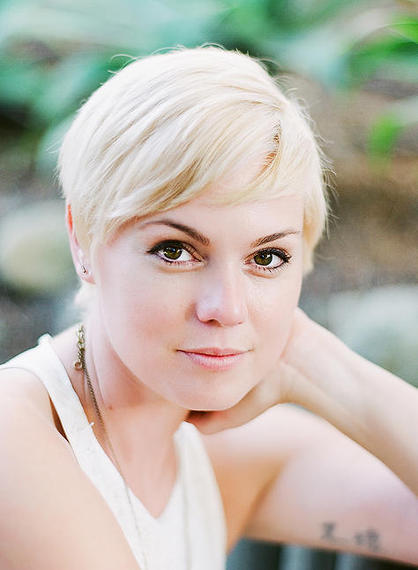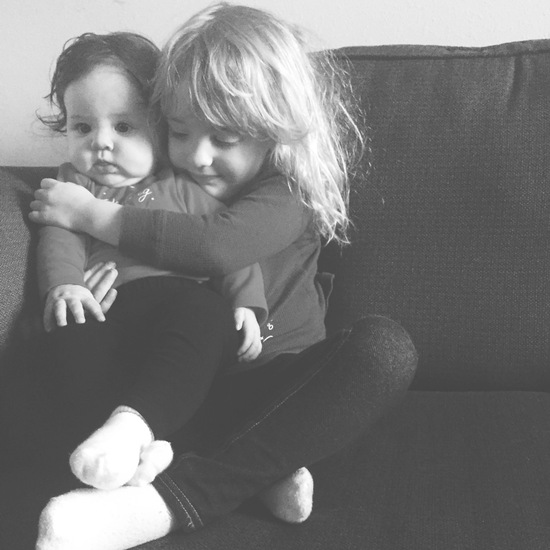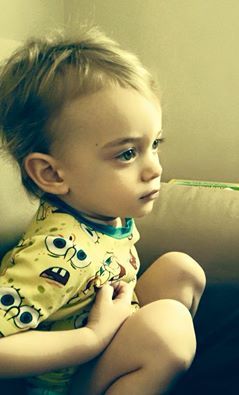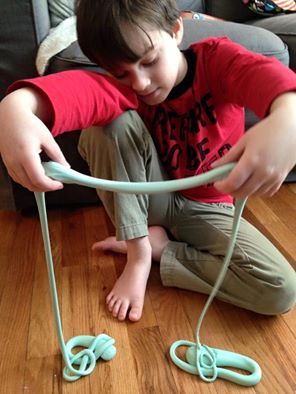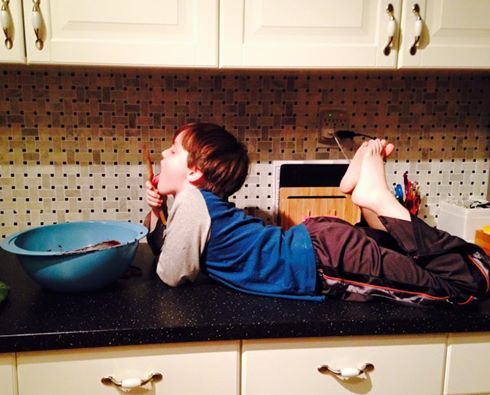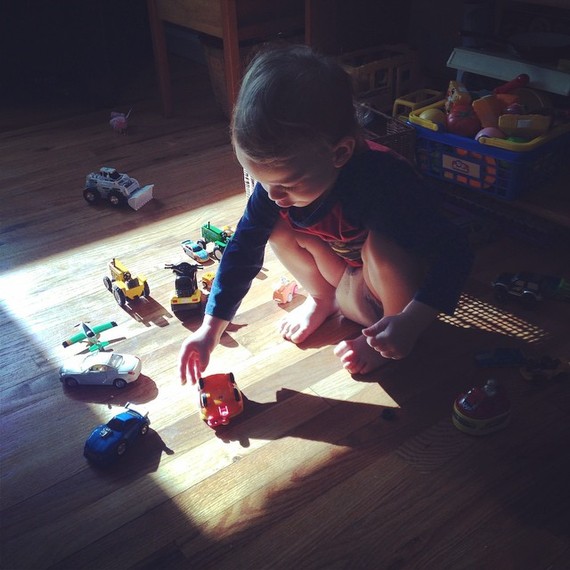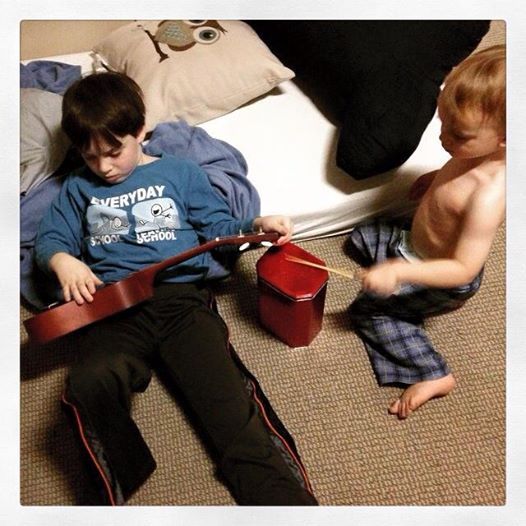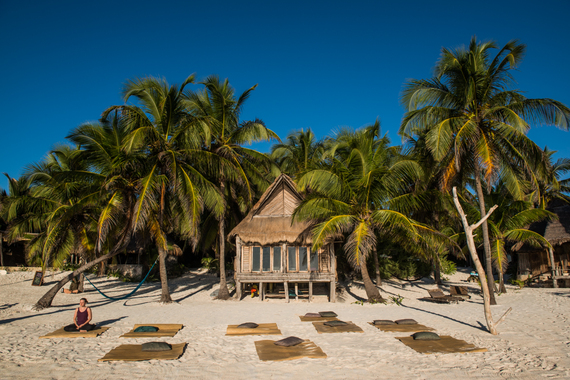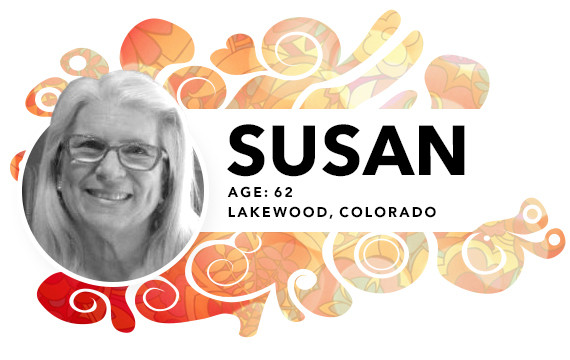The following is an exclusive chapter from James McCrae's forthcoming book, "Sh#t Your Ego Says: Simple Strategies to Overthrow Your Ego & Become the Hero of Your Story." For more information visit www.shityouregosays.com.
It was Wednesday morning (pre-coffee) when I got the email. I had known for weeks that my company, a huge global advertising agency, was about to open a new branch in a nearby city. What I didn't know (that is, until now) was that my position was being reassigned to the new office. I was disappointed. "This happens all the time," I told myself. But truthfully, I felt helpless. Because I had no say in the matter, my destiny felt beyond my control. But I accepted the decision. I bit the bullet and told myself that I had the power inside myself to find happiness wherever I was thrown (I kept my fingers crossed just in case). Afterall, this was just a new location. No big deal. It's not like my job was changing. Or so I thought.
"You didn't know?" my co-worker Aaron told me later in the day. He was also being relocated to the new branch. "We're not just moving to the other office. We are being absorbed into a new department. By this time next month, you and I will have different jobs. They are restructuring the department to fit into the research and analytics team."
I was devastated. Two weeks later, my creative team had moved offices and was absorbed into the analytics department. I tried to fight the decision, but it was too late. I moved to the new office with a box of personal items in my hands and my tail between my legs. I was not happy. At all. "How can the creative team be managed by the analytics team?" I complained to Aaron. "It doesn't make sense. If anything, the analytics team should be managed by the creative team. You can't make imagination part of an algorithm. What is wrong with these people? Their priorities are backwards."
Just when I thought things couldn't get any worse, I discovered that Joe was going to be my new boss. A notorious office asshole, Joe was not a leader by any stretch of the imagination. He was a manager. His management style resembled somebody trying to maximize the productivity of a sweatshop. Instead of encouraging his team to develop our talents, he did everything he could to instill fear in the hearts of his employees. Machiavelli would have been proud.
Fear produces reactionary thinking; trust produces creative thinking. In order for creativity to bloom, the mind must be free. But my new environment was founded on a philosophy of scarcity and fear. "You are all under pressure to produce results quickly," Joe would bark. "I don't care how you do it - just do it. Imagination is a luxury we can't afford." It was hell. For the first time in my life, I felt like my mind had been imprisoned. Energy drained from my body like a leaky faucet. I was trapped. My talents were at the mercy of analytics reports. When the left brain is considered king, the right brain becomes the jester. I felt like a joke.
Putting the creative team in the control of a results-driven analytics department was, I felt, symbolic of the destructive workplace values around the world. My company (and, in many ways, the capitalist system itself) was trying to force the creative process to work like an assembly line. Input data, output results, repeat. The problem is, creativity doesn't work that way. Society often attempts to cram imagination into places where it doesn't fit, like shoving a circular block into a triangular hole. In doing so, purpose is usually replaced with profits. Inspiration is reduced to the lowest billable dollar amount.
The pursuit of our personal purpose and truth should be the reason we show up to work. Working with purpose should never be a luxury - it should be non-negotiable. But is it easy? No. In the chase for quick results, we often forget the dreams that inspired us before we started our career. We show up to work uninspired. Clock in; check out. "I hate my job," the Ego says. "But it's too late to start over. Besides, creativity and dreams are for children. I have bills to pay and things to buy. It would be nice to find a career that aligned with my life purpose, but that's not realistic."
Your Higher Self knows better. "The point of having a job is to expand your vision and develop your talents, not to gain money and security," it says. "Money and security mean nothing if you are hiding from your true self. Your career will become more meaningful to the same degree that you reveal your inner truth to others. Your job is a place to learn from others, and also to teach them. What you learn and teach are more than merely job skills. You learn from others the value of shared humanity. And you teach them the gift of your unique perspective. This value exchange is unseen, but is the true purpose of work."
A quest with no vision.
There was a time when children became adults by going on a spiritual journey. This tradition symbolized official entrance into the tribal community. For example, in some Native American cultures, children who reached a certain age would embark on a Vision Quest. A Vision Quest was a rite of passage that required the child to journey into the wilderness, usually alone, for several days. The objective was for the child to establish a deep connection to both the natural world and the inner self. Upon return from the Vision Quest, the child was empowered with a sense of personal vision, and therefore ready to fulfill their role within the tribe.
Today, we usually enter society on a quest with no vision. Our wilderness is not the forest, but the office building. Our guide is not the inner self, but college degrees and internships. Instead of days spent alone in contemplation, we stare desperately into computer screens with the same intensity that Native American seekers looked into the wilderness, hoping to find an answer in the light of the screen. We don't always like it. But it pays the bills, so we keep showing up.
The stress of the modern workday often leaves us feeling stuck. In the rat race to get ahead in our careers, we barely have time for our friends and family, let alone for pursuing our personal vision. I know, because I have experienced it. When I hated my job, it led to frustration. When my frustration didn't help, it turned into depression. I would sleepwalk through each day, waiting for night. The pride and investment I once had in my work was gone. Why? Because I thought my job was unfair. "Why should I care about my job?" my Ego said. "This company is stupid and my work does not make a difference. Who cares if I do a good job? Nobody will even notice. I'm stuck, like a car in New York City traffic."
At the time, I didn't realize a simple truth: in both work and life, we receive back the love we give. Every time. We also receive back the indifferent we give. Every time. We always receive a fair return on our attitude investment. But I didn't understand this basic principle. So, instead of putting love into my work, I showed up each day seething with resentment. I blamed others for my inability to find happiness. "This environment is toxic," I thought. "So I will be toxic too. It's what this place deserves." During the day I would keep to myself and silently cultivate my anger. During the night I would pour whiskey over ice in an attempt to cloud my memory of the day. I did whatever it took to distract me from my inner turmoil and feel momentarily free.
Trust wherever you are.
Life doesn't make mistakes. Yeah, I know - this can be hard to believe (especially when you feel frustrated by your circumstances). But it's true. Wherever you are, it is a required step in your personal development. In spite of how things may appear, the Universe does not make room for accidents. Where you are at any given moment is exactly where you need to be. "Not true!" the Ego says. "What about circumstances that are unfair and make personal development more difficult? I'm surrounded by negative people. How could this be where I need to be? I'm miserable and want to be somewhere better."
"Life is not always about where you want to be," the Higher Self says. "It's about where you need to be. Every struggle has a purpose. Think about the ancient explorers who paved the way for our modern cities. There were no roads, so they paved them. There were no houses, so they built them. They overcame the obstacles of the land to build something entirely new that would stand the test of time. You are an explorer too. Each person is an explorer of their own purpose. Your land is unsettled. Your roads are still unpaved. These are the struggles of your daily life. There will always be obstacles to overcome in order to discover new territory. But once the roads are paved and houses are built, you can return with ease. Your purpose has been established. This is why, when you look back on past challenges, your struggle makes sense. You see in hindsight that, even though it was difficult at the moment, your obstacles provided a path that would not have been available otherwise. If you could see the big picture, you would understand that the Universe is always connecting the dots (even when you are too frustrated to notice). Therefore it is important to trust where you are. One day you will look back and understand the purpose of your struggle."
We are each on a different path. Your journey is different than mine. We each have a different set of challenges to overcome. Why is it necessary that we face challenges and undesired circumstances? Because everyone has lessons to learn and baggage to release. We are here to learn to let go. Each of us carries pockets of resistance somewhere in the dark corners of our minds, like the residue of past energy that is no longer serving us. This is what happens: as we go through life, we absorb the energy of our environment. Some of this energy is positive, and some is negative. The negative energy we absorb needs to be worked out of our system. Even when our conscious mind releases the baggage of negative energy, the residue of old habits and beliefs remains, stuck and hidden in secret places, like a blind spot of the mind. Only when we investigate the darkness will we know where light is needed. By putting in work (any kind of work, it doesn't matter), we discover these blind spots. In our struggles, we are forced to dig deep into the unexamined corners of our consciousness and release our pockets of stuck energy. If we seek to evade the hard work of life, we will never release the baggage that is holding us down. If you continue to hold onto the stuck energy of old habits and beliefs, you will never evolve beyond the jobs and circumstances you hate. Putting in work is how we learn to let go. In the process we find the value of struggle and the purpose of our journey.
You are always an energetic match with your environment. Look around you. Look at your surroundings. Take it in. Now look within yourself. What energy are you radiating to attract your current conditions? Remember - all life is energy. Even physical matter can be broken down into micro-units until all that remains is energetic frequency. Therefore you can not exist sustainably within an environment (such as a job) that is not, on some level, your energetic match. As such, placing blame on others or feeling resentment about your job is counterproductive. You are not a victim of your environment. Your environment is, on some level, meeting you where you already are. The only way to evolve your environment is to first evolve the frequency of your energy. Your struggle cannot transform until you do. And yet, when you live and act mindfully, your struggle can act as a catalyst for personal transformation. The tension between where you are and where you want to be can propel you forward. Our biggest challenges are our best teachers. This is why there is value in every difficult moment.
All work is holy.
"Work is love made visible." -- Kahlil Gibran
Your life purpose starts wherever you are. You can't wait for circumstances to be perfect because they never will be. The first step toward every dream was taken by somebody who was stuck in an environment they did not choose. You must begin living your purpose before your environment adapts. It's almost like a cosmic test. "Can you live your purpose even when circumstances are not ideal? Can you act out your role before the stage is ready?" the Universe asks. "If you pass the test, I will accommodate the right circumstances to match your attitude. But first, you must prove that you are committed to living your purpose internally before external conditions are matched." It's not always fun, but those are the rules. If you want a job that aligns with your life purpose, you must begin with the job you have now.
All work is service. Think of yourself as a healer. Your co-workers, customers and clients are the people you are assigned to serve and heal. Your role is important. It doesn't matter what you do. The cab driver has a mission every bit as valuable as the CEO. Your role is important because, no matter what you do, people are depending on you. You may not enjoy your work. I understand the feeling. But the work itself is not as important as the people you serve. You are assigned to serve the people who your work touches. And yet, your job now is not your fate. Your role will eventually change as your consciousness changes. But, at this moment, you are being called to make an impact where you have been assigned. It's not perfect. But things are never perfect. Instead of waiting for your job to be perfect, make your reaction to your job perfect. Show up everyday as an act of service. Take what you are given and turn it into art.
Like this post? Visit shityouregosays.com for simple strategies to overcome your Ego and become the hero of your story.












 Like Us On Facebook
Like Us On Facebook  Follow Us On Twitter
Follow Us On Twitter
